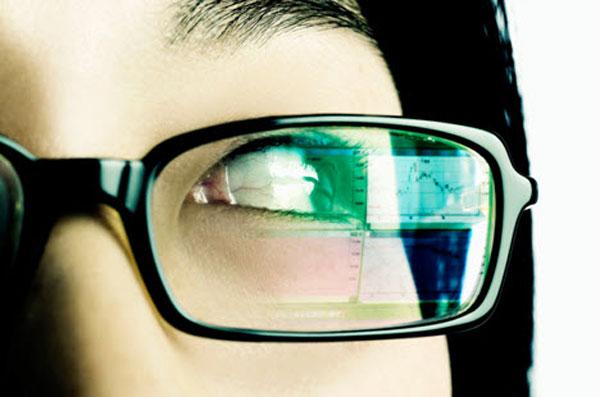
A lot of talk lately has been of Google's alleged plans to launch Android-powered glasses later this year.
These glasses will be part of what is believed to be the beginning of a revolution of wearable devices. According to a report in December of last year, both Google and Apple have been dabbling in this area for some time, spending the last year on R&D efforts behind closed doors. Other wearable devices, like smart watches, have already been around for some time and were displayed again at CES last month.
Wearable computing is a natural progression of sorts – or science fiction would have us believe so. But Google's glasses have sparked a little controversy. A great divide. Some people love the idea, others hate them. Damon Brown of PC World, for example, wrote an opinion piece calling Google Glasses a "prescription for disaster." Others, however, are reveling at the possibilities of such glasses.
The idea is that the glasses will strongly resemble Oakley's Thump line of sunglasses and will have a heads-up display, similar to your typical Android-powered smartphone. For navigation, you will have to nod and tilt your head. And, much like with smartphones and other wireless devices, Google will offer them through a third-party wireless provider for 3G or 4G service. But as Brown explains, the glasses "aren't designed for continuous wear" and presumably would be used more like a tablet would, as a supplementary device.
But this negative spin that is beginning to pop up around the Web is expected. Smart glasses are a new, nontraditional and foreign concept. And yes, wearing a device on your face and nodding and tilting your head to navigate the interface – which no one else will be able to see – will make wearing a Bluetooth headset in public seem strangely normal by comparison.
The general public isn't ready for it yet. They're not ready for a heads-up display covering their eyes. Things like that should stay on SyFy for a few more years or so. Yet this is what we've been begging for along. The mobile realm has grown drab after everyone has been desensitized from nearly 100 phones launching worldwide in a short year's time. We need something new, something different, a new direction.

What's worse – or better depending on how you look at it – is that smart glasses are only the beginning, a transitional step to carry us into true wearable computer era. Barry Neild of CNN explains in his article titled How mobiles of the future will get under our skin that Ray Hammond, a "so-called futurologist who has carved a career out of accurately forecasting technological leaps", believes phones and tablets of today will be broken into tiny pieces and scattered about the body, even implanted in the skin. "Fashionable spectacles will provide the visual display, earring studs the audio. A third device will provide touch input," says Neild. And glasses such as what Google is believed to be making will provide "a complete physical interface to the digital and virtual worlds," according to Hammond.
It's all very interesting and seems so unlikely. Just five short years ago is when this smartphone revolution was kick-started. Now we're already talking smart glasses, smart watches and an entire wardrobe of smart clothing. Then comes smart contacts and who knows we'll head after that.
Still, none of this is a good reason to scoff at the future and debunk the technology before we know what it's really all about.
Being the gadget nut that I am, I'm about as intrigued as I can get about the whole thing. I loved tablets (before the iPad ever existed) and people called me crazy. I will always be that guy believing in the unlikely technology of the future (with my own reservations, of course), wearing the first run of smart glasses from Google, standing in line for the first flexible phone.
None of this is to say that Android-powered glasses will be a hit. For all we know, they might not even be real. They might be a project that won't leave the R&D labs until 2020. Sure, the idea is a bit strange, and people walking the streets tilting and nodding their heads will never seem quite right.
And who knows how long it will be before Apple releases the first eyePhone. Rest assured, I will (skeptically) stand in line with money in hand when these things launch. However, I may never leave my house with them in my bag (or eye), and I'll be keeping my reciept ... just in case.
What say you, readers? Is the world ready for true wearable computers? Implanted devices? Do you think you will buy the Google Glasses once they launch?
Image via TQcast, Futurama Wiki